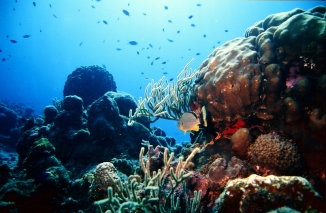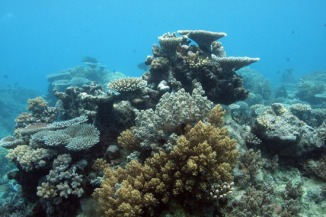
The CSS said scientists have long needed a comprehensive record of barrier reefs the state of the world’s reefs. Up to now it was not possible to do that on a massive scale, the researchers said The free Catlin Global Reef Record involves a range of images captured from the CSS’s huge survey operation HOW THEY DID IT To create the amazing underwater images, the Caitlin survey developed specially designed tablet-operated underwater cameras. Complete with their own propulsion system, the images are captured through a spherical camera housing that allows continuous high-resolution, 360-degree panoramic imagery to be collected as divers steer through the reefs. Each image is geo-located, with automated technologies for rapidly assessing the amount of coral cover and other life forms site web But today the free-to-access Catlin Global Reef Record has gone live. It involves a range of images captured from the CSS’s huge survey operation. The record builds on a partnerships with Google Street View last year which aimed to provide a comprehensive record of the Great Barrier Reef.


Credit: Reuters/Mexican Center for Environmental Right/Handout By Jason Lange CANCUN, Mexico | Tue Sep 30, 2008 8:08am EDT CANCUN, Mexico (Reuters) – Dainty blue fish dart around coral shaped like moose antlers near the Mexican resort of Cancun, but sickly brown spots are appearing where pollution threatens one of the world’s largest reefs. Parts of the reef, nestled in turquoise waters, have died and algae — which feed on sewage residues flowing out of the fast-growing resort city — has taken over. Coral reefs like Chitales, near the northern tip of a Caribbean reef chain stretching from Mexico to Honduras, are dying around the world as people and cities put more stress on the environment. Climate change alone could trigger a global coral die-off by 2100 because carbon emissions warm oceans and make them more acidic, according to a study published in December.












